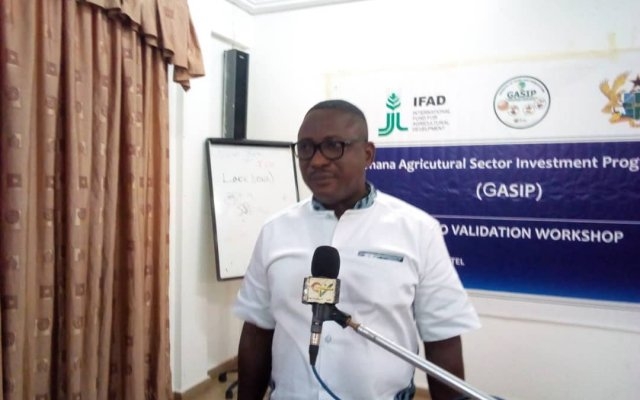N/R: GASIP engages smallholder farmers to boost productivity

With funding from the International Fund for Agricultural Development, IFAD, the forum brought together FBOs and other stakeholders to reorient and realign themselves with best practices and investment.
According to the National Programmes Coordinator, Mr Klutse Kudomo, the Ghana Agricultural Sector Investment Programme wants to partner the smallholder farmers to increase their productivity and income levels.
He explained that GASIP would ensure the right input, infrastructure and adequate training is given to the farmers to improve productivity. He said this partnership is in line with the programmes that the government have embarked upon to increase agricultural production by using small-scale farmers in the country. He noted that this programme is occasioned based on the success stories of the government's flagship Youth in Agriculture Programme where resources are given to farmers, adding that the resources are recovered in a sustainable manner and utilised year after year to increase production.
Mr Kudomo indicated that the Youth in Agriculture Programme was able to grow 43,000 acres of maize in the last season, stressing that 80 per cent of the resources have been recovered so far.
He mentioned that GASIP is implementing the Cluster Driver model. This, he explained, would ensure farmers working with their Farmer-Based Organisations, put the FBOs in clusters through which requisite inputs can be distributed and access to markets facilitated.
He revealed that for this year, about 100, 000 acres of land would be used for the project. The GASIP programme is targeting crops such as maize, rice, soya beans, vegetables and cassava in the first phase, but other value chains would be considered subsequently.
Productivity is expected to increase significantly, using improved seeds, improved fertiliser and chemicals. Maize yields are expected to grow as high as 4.5 tonnes per hectare on the average and rice is expected to grow by about the same tonnage on the average.
Meanwhile, farmers who participated in the programme welcomed the partnership and appealed to GASIP to consider providing tractors, which they indicated are critical for boosting productivity.
Source: Ghana/ClassFMonline.com/91.3FM/Mohammed Gadafi
Source: David Apinga
Trending News

UW/R: I can’t’ve the man I defeated as my successor – Akufo-Addo tells Wa Naa
12:15
Submit 2023 audited financial statements by May – Akufo-Addo orders SOEs
07:48
I’m 100% certain lithovit submitted to me for testing at CRIG is liquid – CRIG's lead scientist
07:31
Dismiss ECG, GWCL, GACL bosses over losses – United Voices for Change to gov’t
07:38
'It's a disgrace for Akufo-Addo gov't' – Aduomi on vote-buying at Ejisu by-election
15:11
Arsonists petrol-bomb Class Media Group’s Labone HQ
12:42
NPP retains Ejisu seat; Kwabena Boateng elected MP
07:00
Cocobod trial: RM&E Dir. schools Chief State Attorney in court
10:55
Ejisu by-election: EC withdraws 2 officials captured on video receiving alleged bribe
15:01
Bawumia hailed for religious diversity after visit to Pope Francis
05:41



